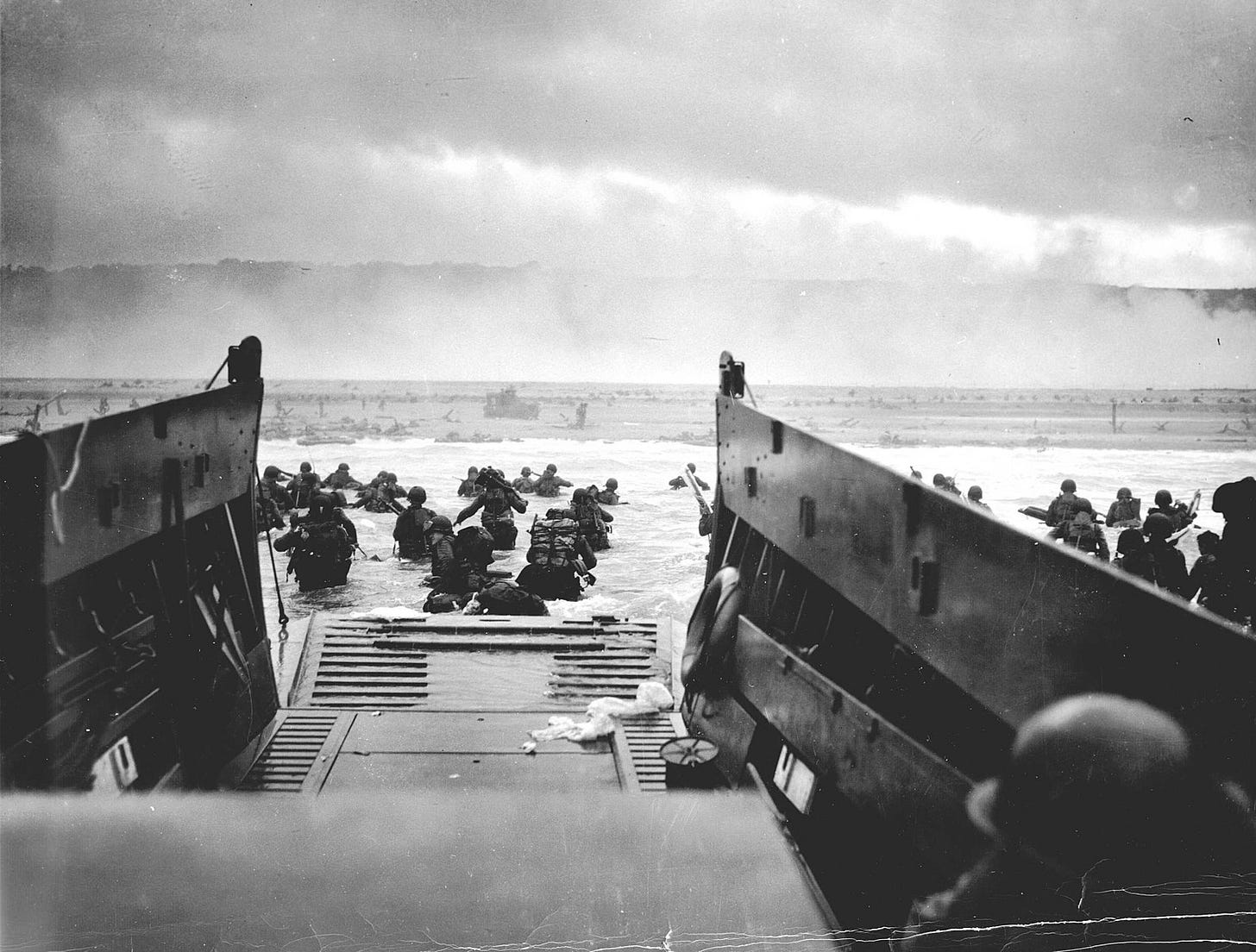You can call it an invasion if you like, but I prefer to think of D-Day as a reconquest. “Normandy” is a name from the old Norse word Northmathr, meaning “Northman.” Put simply, these were Vikings. They came stalking down from the hills and hollows of Scandinavia to conquer a portion of what is now France. As Charlemagne’s empire buckled after his death, Northmen broke off pieces of it to claim as their own.
Among the most fearsome was Hrólfr—known in Latin, regrettably, as Rollo. Impressive though he was as a warlord, Rollo was humbled by a defeat at Chartres in 911, leaving him no choice but to pledge fealty to the Franks and their Christian God. Duly tamed and pressed into service for Christendom, Rollo accepted as a consolation prize the imposing granite cliffs and fertile riverside property of what is now, in his honor, called Normandy.
Rollo’s dominion eventually passed to William II, whose recently minted Christianity did little to calm the deep-running fury of his Viking blood. William is known to history as “the conqueror,” a title he earned with relish by surging with his armies across the channel in 1066 and laying hold of England. From then on the Anglo-Saxon locals grudgingly accepted Norman rule, mingling uneasily but irresistibly with their new aristocratic class.
These two Christian peoples fused so entirely into one that English chroniclers found it hard to decide whether their founding hero King Arthur came from Saxon or Norman stock. Like Genghis Khan or Attila the Hun, William the Conqueror has many descendants but no living heirs: the Normans themselves melted away as a people, but Norman heritage endures to this day in England and France.
And so, of course, in America. Family names like Hamill and Bowles came with the British colonists to the new world, so that by the turn of the 20th century it was possible to find black intellectuals with Norman names in segregated states. Witness F.B. Bowles, founder of Douglass University in Missouri, claiming territory his medieval namesakes never knew existed. A uniquely American wonder.
When those boys stormed the beaches 80 years ago, they were wading grimly back across the same channel William had crossed in the high Middle Ages. They brought centuries of English, French, and American chivalry to bear on a shoreline claimed by Nazi Neo-pagans, whose Germanic nostalgia hearkened back to the rough days of pre-Christian Europe. It wasn’t an invasion. It was Normandy for Normans.
It’s easy to get sick of historical mythology, since the kind peddled by our self-styled aristocrats is so facile and twee. We are beset with small men who LARP as plucky hobbits fighting new-made “Nazis” while actually leveraging immense power to persecute their enemies and oppress their dependents. And of course even in genuinely noble wars like the one the Allies waged, reality is always murkier than the myths we tell about it.
But there is truth to some myths, too, and some deeds of valor really are glorious enough to deserve all the luster of the glamorous past. Just because the governing narrative is transparently dishonest doesn’t mean there aren’t veins of real legend running through our recent history. Though we have squandered their legacy at an alarming pace, it’s not that long since America produced men worthy to be counted among the knights of old.
Rejoice evermore,
Spencer
Listen to the latest from Young Heretics.





On the off chance you haven’t read Ivanhoe, it’s a fantastic, fun, action packed account of the post Norman years - with quality Robin Hood and Jewish angles thrown in, too.
Crazy to think what an impact that invasion had on history - and then to think that in a decade under Blair, more foreigners settled in England than in all the centuries between 1066 and 1950!
Wonderful letter. Words matter. Stories matter. This week CNN called the RESCUE of four Israeli hostages a release. Our current society is plagued with corrupted words and stories.